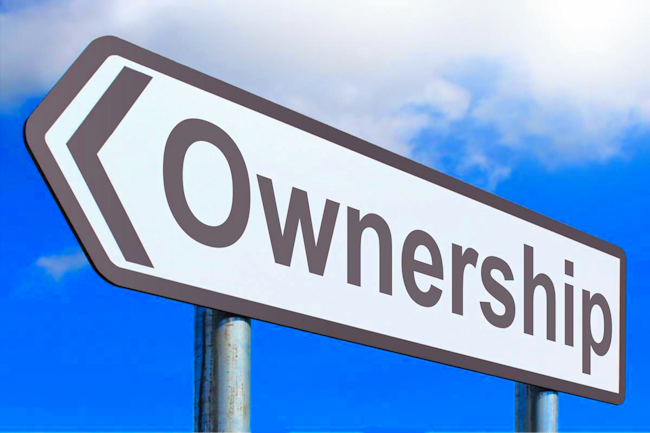In Thailand, foreign ownership can be divided into three main categories: condominium and property ownership, land ownership, and business ownership.
Business ownership
Doing business can be a bit tricky since the Thai government have rules and regulations to ensure Thai citizens have crucial jobs. Thailand’s Foreign Business Act (FBA) B.E. 2542 (1999) categorizes businesses into three distinct groups, each with its own set of restrictions and requirements for foreign ownership and operation.
Category 1 (prohibited business)
Businesses in this category are exclusively owned by Thai nationals, and although it has been reported some can still manage to do it legally most of the percentage will have to be given up. These businesses are protected as it is considered vital to Thailand’s national interests, security, and cultural heritage, and thus, the government restricts foreign involvement to protect these areas. Some of the businesses are :
- Broadcasting services
- Operating radio and television broadcasting services
- Banking and finance
- Establishing banks, financial institutions, or securities firms
- Education services
- Running certain types of educational institutions, such as universities, without specific permissions
- Telecommunication
- Ownership and operation of telecommunications services.
Category 2 (restricted business)
Restricted Businesses in Thailand are sectors do allow foreign ownership and participation but with specific limitations. While foreigners can operate these businesses, they must follow strict rules that protect Thai nationals’ interests. A Foreign Business License (FBL) is required from the Thai Ministry of Commerce before starting operations. Most restricted businesses also require Thai nationals to hold the majority stake (usually 51%) in the company. Some of the businesses in this category are :
- Restaurants & bars
- Establishing dining establishments and nightlife venues.
- Beauty salons and barber
- Operating personal services
- Transportation services
- Running taxi services, limousine services, or other transportation-related businesses.
- Tourism services
- Establishing travel agencies, tour operators, or hospitality services.
Category 3 (non-restricted business)
Non-restricted businesses in Thailand are sectors that welcome foreign ownership and participation with minimal limitations. The focus is mainly on trade and service industries that help boost Thailand’s economic growth and international trade relations. Some of the businesses are :
- Wholesale and retail trading
- Sale of goods in bulk or retail environments.
- Manufacturing
- Operating factories and production facilities.
- Import and export
- Businesses involved in the import and export of goods.
- Construction services
- Providing construction and engineering services.
- IT and technology services
- Running information technology, software development, and related tech services.
Land ownership
As of 2024, Thailand does not allow foreigners and expats to own land. However, there are alternative options like a long-term lease normally about 30 years. Additionally, foreigners also have several options for property ownership in Thailand. Another option is establishing a Thai company, where Thai nationals must hold at least 51% ownership.
Additionally, foreigners can invest in sectors promoted by the Board of Investment (BOI), which may grant special ownership rights. Each of these options provides different opportunities for foreign investment in Thai property.
Agricultural land ownership
Foreigners are generally prohibited from owning agricultural land outright. However, some exceptions are rare and typically involve collaborating with Thai majority-owned companies or qualifying under specific investment promotions like the BOI. Under the Thai Land Code (agricultural Standards Act, B.E. 2551), foreigners are prohibited from holding title deeds for agricultural land, including rice fields, orchards, and plantations.
This restriction aims to prevent excessive foreign ownership that could outbusiness the livelihoods of Thai farmers. If you do plan to invest in this sector, engaging in agricultural land arrangements in Thailand requires meticulous attention to legal and financial details, making it highly recommended for expatriates to consult with Thai legal experts or property consultants to navigate the complexities of land laws and ensure all transactions comply with Thai regulations.
Condominium ownership
According to the Foreign Business Act (FBA) and the Condominium Act B.E. 2522 (1979), foreigners have the right to own condominium units in Thailand, subject to certain conditions. The key regulation is the foreign quota, which limits foreign ownership to 49% of the total unit area in any condominium building. This ensures Thai nationals maintain majority ownership, in line with national property policies.
Additionally, the unit must be officially classified as a condominium under Thai law. It’s important to note that units classified as land-based properties or those including significant land ownership are subject to stricter regulations and are generally not available for foreign ownership.
In Thailand, foreign ownership is regulated through clear categories. While foreigners can own condominium units up to a 49% quota, direct land ownership is prohibited, with alternatives like long-term leases and Thai majority-owned companies available. Business ventures are divided into prohibited, restricted, and non-restricted categories under the Foreign Business Act, each with specific requirements for foreign participation. These regulations and professional legal advice are essential for navigating Thailand’s property and business landscape successfully. By following these laws, expatriates can effectively invest and thrive in Thailand’s economy.
There is no specific limit on the number of condominium units a foreigner can own in Thailand, provided that the 49% foreign ownership quota in the condominium building is not exceeded. This means that as long as the total area owned by foreigners remains below 49% of the entire building, a foreigner can purchase multiple units across different projects or within the same building, subject to availability and compliance with all regulations.



